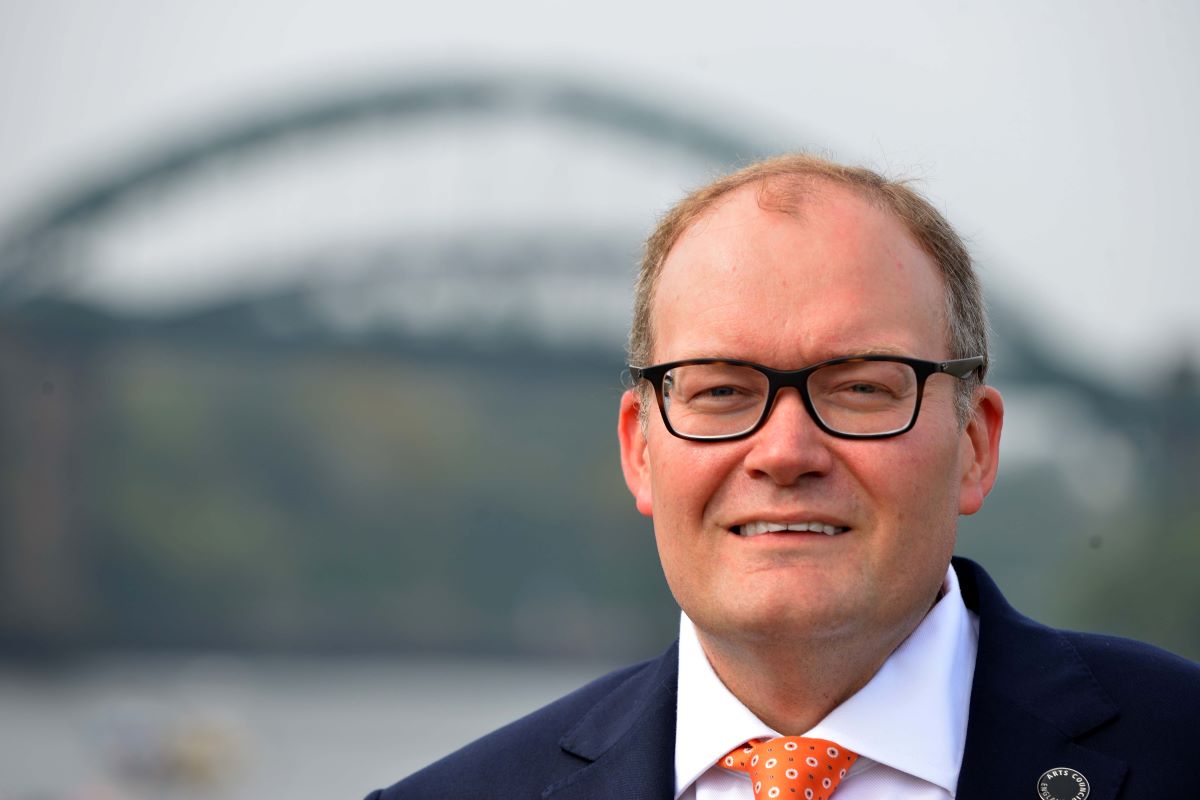
Darren Henley says ACE wants to improve the way it serves arts organisations and audiences
Photo: Courtesy of Sunderland Echo
ACE seeks to simplify ‘onerous’ reporting requirements by 2027
Chief Executive of Arts Council England says that while data collection from funded organisations is a necessity, he hears the sector's concerns and wants to act.
Arts Council England is working on ways to streamline how National Portfolio Organisations are required to provide data in time for its next funding round beginning in April 2027, its Chief Executive Darren Henley has said.
Appearing on BBC Radio 4's Front Row programme last night (29 April), Henley was asked about the "very onerous" reporting requirements and was given an example of one organisation that said it is spending a third of the ACE grant it receives on reporting.
Henley said the organisation wants to improve processes for both arts organisations and audiences in time for the next National Portfolio period, which, due to the current period being extended by a year, will begin in 2027/28.
READ MORE:
- Reporting requirements: NPO leaders share their frustrations
- ACE drops reporting requirements over data platform glitches
"I hear what people are saying," Henley said.
"There's two things I'm talking to our team about as we think about our next funding round – first is how can we best serve our customers, whether that be applicants to us or our audiences, and how can we simplify things?
"So we hear that, and we want to do that."
'We need data'
However, Henley did stress that ACE is obliged to complete processes related to monitoring the use of the funding it provides.
"We have to make sure we guard the use of public money as best as we possibly can.
"And there are lots of rules and regulations we have to go through. We also need to collect data to be able to make the case.
"So to make the case to government and for future investment, we need that data to show what we're doing."
Concerns have previously been raised about the platforms through which organisations apply for funding (Grantium) and subsequently provide data about the impact the funding has (Illuminate).
Speaking last week, Shadow Culture Secretary Thangam Debbonaire said she had heard concerns from arts organisations about the "complicated application processes" and the processes required of organisations in the National Portfolio.
She said a Labour government would conduct a fresh review of ACE if the current process, led by Dame Mary Archer, "does not ask the right questions."
'Biggest challenge is money'
Asked on Front Row about the current review of ACE, which has resulted in some arts leaders calling for changes to the funding system and criticising ACE's decisions, Henley said he "always welcomes honest, helpful criticism."
"This is the second [review] that I've had in my time here," he said.
"It's really important – it will look at the effectiveness and the efficiency of the organisation. I really welcome that, [and] I'm always open to having dialogue.
"We always want to do things better [and make] the best possible case we can for our artists, our arts organisations, our museums and libraries.
"They do brilliant work. The biggest challenge we have actually is there are so many organisations we could fund doing really high quality work. If we had more money, we could make more of that happen."
Join the Discussion
You must be logged in to post a comment.